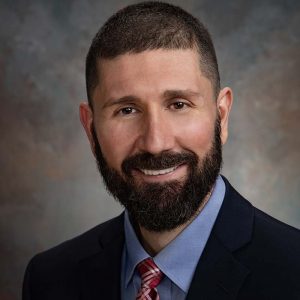Sept. 22, 2000
By David Miller

Dr. David L. Albright
TUSCALOOSA, Ala. – University of Alabama Social Work professor Dr. David L. Albright has been elected to the National Association for Rural Mental Health’s board of directors.
Albright, director for the Office for Military Families and Veterans and the Vital initiative principal investigator, is excited to begin his three-year term on NARMH’s board. NARMH is comprised of rural healthcare professionals who include researchers and practitioners, as well as advocates and consumers.
The goal of the board is to influence national healthcare policy by connecting diverse voices to find “innovative solutions and model programs” and create a “shared voice” in the policy arena.
“By serving on the board and sharing information with stakeholders across the state, I felt this was an excellent opportunity to encourage positive change for Alabama and highlight what is going on in our state to a national audience,” Albright said.
Albright’s research and leadership in rural behavioral health in Alabama includes an appointment to the board of directors for the Alabama Rural Health Association, which represents more than 600 members, including rural hospitals, rural health clinics and community health centers across the state.
In 2018, Albright was named a National Rural Health Association fellow, during which he focused on rural veteran behavioral health. Albright’s rural focus and commitment is consistent with UA’s strategic research objectives on solving problems related to rural and underserved communities.
“Alabama’s Black Belt and Mississippi Delta counties are some of the highest need counties in the country,” Albright said. “These rural areas continue to have significant need for behavioral health services and providers. Combine this lack of availability of services and providers with challenges of accessing existing services and the stigma of mental and substance use disorders, and you have a powerful combination of factors keeping Alabamians from getting the assistance they need.”